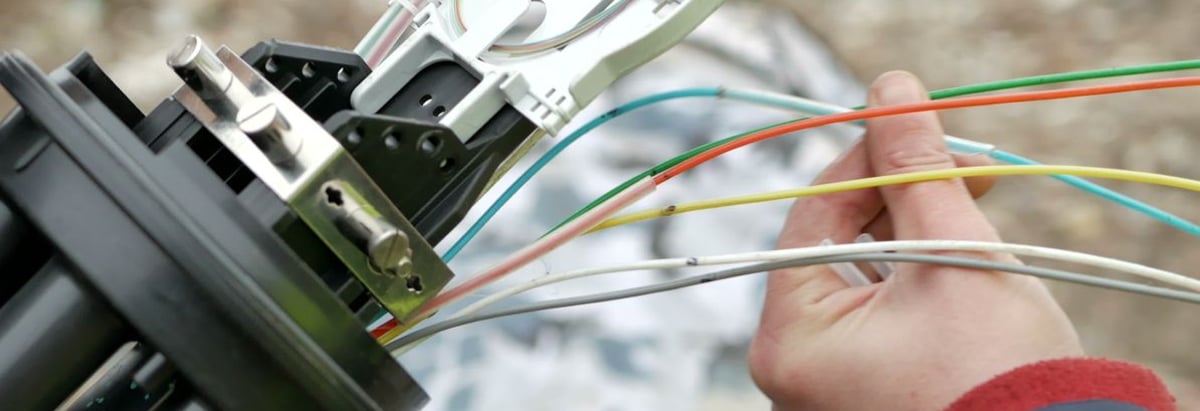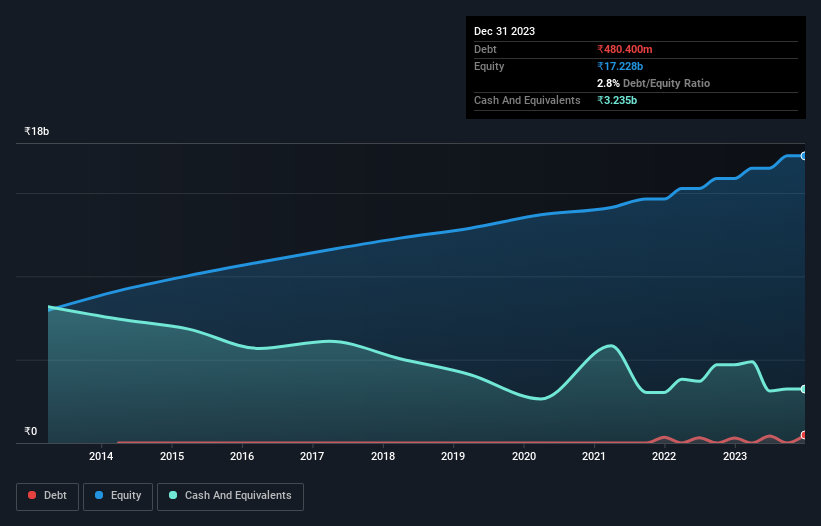- India
- /
- Telecom Services and Carriers
- /
- NSEI:RAILTEL
Is RailTel Corporation of India (NSE:RAILTEL) Using Too Much Debt?

Some say volatility, rather than debt, is the best way to think about risk as an investor, but Warren Buffett famously said that 'Volatility is far from synonymous with risk.' So it seems the smart money knows that debt - which is usually involved in bankruptcies - is a very important factor, when you assess how risky a company is. Importantly, RailTel Corporation of India Limited (NSE:RAILTEL) does carry debt. But should shareholders be worried about its use of debt?
When Is Debt A Problem?
Debt and other liabilities become risky for a business when it cannot easily fulfill those obligations, either with free cash flow or by raising capital at an attractive price. If things get really bad, the lenders can take control of the business. However, a more usual (but still expensive) situation is where a company must dilute shareholders at a cheap share price simply to get debt under control. Of course, debt can be an important tool in businesses, particularly capital heavy businesses. When we think about a company's use of debt, we first look at cash and debt together.
View our latest analysis for RailTel Corporation of India
What Is RailTel Corporation of India's Debt?
As you can see below, at the end of September 2023, RailTel Corporation of India had ₹480.4m of debt, up from ₹297.3m a year ago. Click the image for more detail. However, it does have ₹3.23b in cash offsetting this, leading to net cash of ₹2.75b.

How Healthy Is RailTel Corporation of India's Balance Sheet?
Zooming in on the latest balance sheet data, we can see that RailTel Corporation of India had liabilities of ₹16.5b due within 12 months and liabilities of ₹1.76b due beyond that. On the other hand, it had cash of ₹3.23b and ₹12.8b worth of receivables due within a year. So its liabilities total ₹2.25b more than the combination of its cash and short-term receivables.
Given RailTel Corporation of India has a market capitalization of ₹111.3b, it's hard to believe these liabilities pose much threat. Having said that, it's clear that we should continue to monitor its balance sheet, lest it change for the worse. While it does have liabilities worth noting, RailTel Corporation of India also has more cash than debt, so we're pretty confident it can manage its debt safely.
On top of that, RailTel Corporation of India grew its EBIT by 53% over the last twelve months, and that growth will make it easier to handle its debt. The balance sheet is clearly the area to focus on when you are analysing debt. But it is future earnings, more than anything, that will determine RailTel Corporation of India's ability to maintain a healthy balance sheet going forward. So if you want to see what the professionals think, you might find this free report on analyst profit forecasts to be interesting.
Finally, a company can only pay off debt with cold hard cash, not accounting profits. RailTel Corporation of India may have net cash on the balance sheet, but it is still interesting to look at how well the business converts its earnings before interest and tax (EBIT) to free cash flow, because that will influence both its need for, and its capacity to manage debt. In the last three years, RailTel Corporation of India's free cash flow amounted to 39% of its EBIT, less than we'd expect. That's not great, when it comes to paying down debt.
Summing Up
We could understand if investors are concerned about RailTel Corporation of India's liabilities, but we can be reassured by the fact it has has net cash of ₹2.75b. And it impressed us with its EBIT growth of 53% over the last year. So is RailTel Corporation of India's debt a risk? It doesn't seem so to us. When analysing debt levels, the balance sheet is the obvious place to start. But ultimately, every company can contain risks that exist outside of the balance sheet. Be aware that RailTel Corporation of India is showing 2 warning signs in our investment analysis , and 1 of those doesn't sit too well with us...
When all is said and done, sometimes its easier to focus on companies that don't even need debt. Readers can access a list of growth stocks with zero net debt 100% free, right now.
New: AI Stock Screener & Alerts
Our new AI Stock Screener scans the market every day to uncover opportunities.
• Dividend Powerhouses (3%+ Yield)
• Undervalued Small Caps with Insider Buying
• High growth Tech and AI Companies
Or build your own from over 50 metrics.
Have feedback on this article? Concerned about the content? Get in touch with us directly. Alternatively, email editorial-team (at) simplywallst.com.
This article by Simply Wall St is general in nature. We provide commentary based on historical data and analyst forecasts only using an unbiased methodology and our articles are not intended to be financial advice. It does not constitute a recommendation to buy or sell any stock, and does not take account of your objectives, or your financial situation. We aim to bring you long-term focused analysis driven by fundamental data. Note that our analysis may not factor in the latest price-sensitive company announcements or qualitative material. Simply Wall St has no position in any stocks mentioned.
About NSEI:RAILTEL
RailTel Corporation of India
Provides broadband telecom and multimedia networks and services in India and internationally.
Flawless balance sheet with reasonable growth potential.
Similar Companies
Market Insights
Community Narratives



